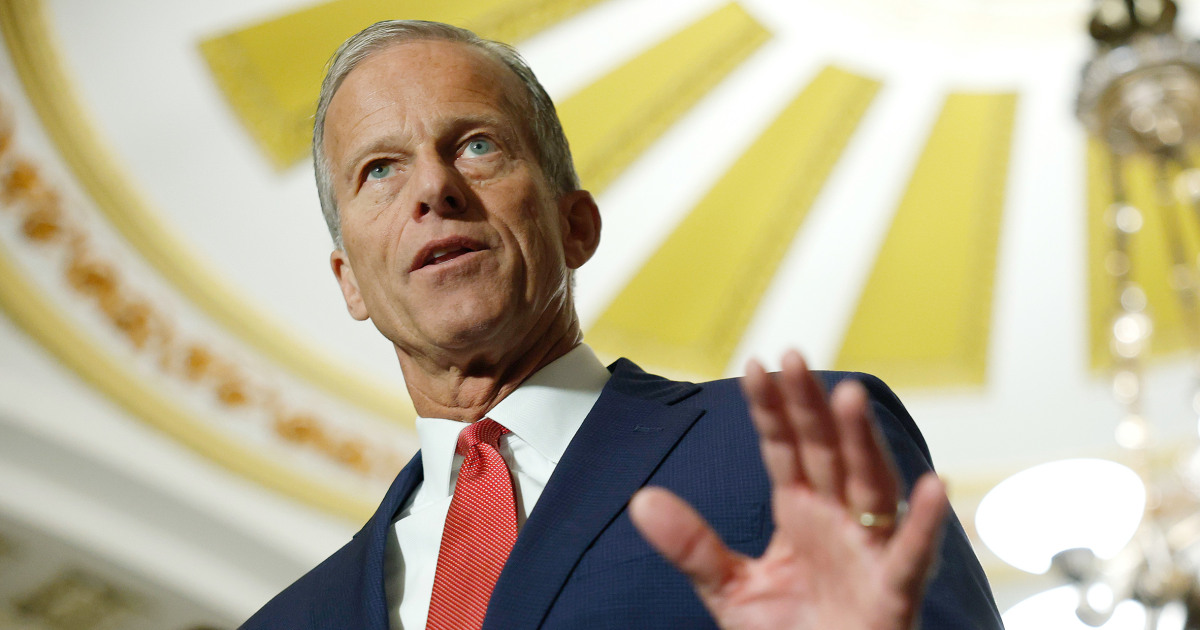WASHINGTON — The Republican-controlled House on Friday passed a stopgap bill to fund the government until just before Thanksgiving, daring Democrats in the Senate to reject the measure and risk a shutdown at the end of this month.
The vote was 217-212, with one Democrat, Rep. Jared Golden of Maine, joining Republicans in voting yes. Two Republicans — conservative Reps. Tim Burchett of Tennessee and Victoria Spartz of Indiana — and all other Democrats voted against the bill.
The short-term funding bill, known as a continuing resolution or CR, now heads to the Senate, where Minority Leader Chuck Schumer, D-N.Y., and other Democrats have vowed to defeat it and have offered their own competing funding plan.
Both measures are expected to be rejected when they come to the Senate floor later Friday. What happens next is uncertain.
To overcome a filibuster, 60 votes are needed in the Senate, meaning any bill to avert a shutdown and buy appropriators more time to strike a longer-term funding deal must be bipartisan.
The House bill extends federal funding at current levels without any other policy changes. It would keep the government open through Nov. 21.
The Senate Democratic bill would fund the government through Oct. 31 with a series of policy demands. It would permanently extend Obamacare subsidies set to expire at the end of the year, as well as reverse Medicaid cuts enacted in President Donald Trump’s “big, beautiful bill.”
It also addresses Trump funding cuts that have infuriated Democrats in recent months: It would lift the freeze on foreign aid funding that the White House is withholding through “pocket rescissions” and restore funding for public broadcasting.
“Democrats have a different option. We address the crises Americans face in health care, in Medicaid, in inflation and in higher costs,” Schumer told reporters Thursday.
He accused Trump of ordering House Speaker Mike Johnson, R-La., and Senate Majority Leader John Thune, R-S.D., not to sit down and negotiate with him and House Minority Leader Hakeem Jeffries, D-N.Y., on how to keep the government’s lights on.
“Donald Trump made it clear, don’t even bother dealing with the Democrats,” Schumer said, referencing an interview Trump gave to Fox News. “Thune and Johnson listen to Trump. They are not independent actors. They don’t represent an independent Congress, an independent House or an independent Senate. And when Donald Trump says don’t negotiate with Democrats, they don’t and come up with 20 excuses.”
Johnson, in an appearance on Fox News on Thursday night, defended the GOP legislation, which is backed by Trump. Johnson has characterized it as a “clean” CR, a point disputed by Democrats who argue it extends “status quo” funding levels that were driven down by Trump’s cuts.
“We need a few more weeks to finish this good work” on a longer-term funding deal, Johnson said on Fox. “What we did, in a responsible manner as Republicans in charge, is we offered a totally clean short-term CR to get that job done. Chuck Schumer saw that. He returned a counteroffer that is filled with partisan wish lists and poison pills and demands.”
Unless the House and the Senate can pass the same funding legislation and earn Trump’s signature, the government will shut down Oct. 1, the start of the new fiscal year. In a shutdown, mandatory services, such as Border Patrol, the Postal Service and Social Security, will continue, but federal workers, including the military, will go unpaid.
Both the House and the Senate are scheduled to be on recess next week for Rosh Hashanah. The House plans to be back in session Sept. 29 and 30, but GOP leaders said they are considering scrapping those days to put more pressure on Senate Democrats to swallow the House-passed bill.
In the wake of the Charlie Kirk assassination, the House bill includes $58 million for additional executive and judicial branch security. It also includes $30 million for extra security for members of Congress, including mutual aid, which reimburses local police for costs incurred protecting lawmakers at their homes or at town halls and other public events.
Bipartisan appropriators are negotiating even more security funding in their spending bills for fiscal year 2026.
“When you have a big event like we had with the tragic shooting of our friend Charlie Kirk, it draws attention to it, and we’re in a constant process of improvement, making sure that we have the latest and greatest technology and resources available,” Johnson said.
“So that’s the process we’ve been going through. We’re adding additional funding and measures to ensure that everybody is safe and that they can do their job representing the people from back home.”
Source link
